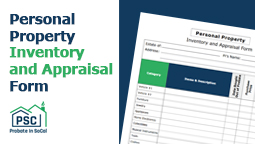What do you do when you inherit a home with someone else, and one person wants to sell, and the other does not? This can get awfully tricky and very controversial. This is where probate may need to step in. It’s an all too common problem, especially among families, but there are various solutions that the parties can take.
First up, verify that both parties own the property outright. Has it gone through probate, or was it inherited through will? Does the will give guidance on how to distribute the property? Probate courts will enforce a person’s last will as closely as possible if there is one. If there is no will, there will not be an initial discussion on who does what with the property.
Oftentimes, the Will states that both parties, in most cases siblings, own the property together. These siblings or whichever two parties are involved will need to figure out if a mortgage needs to be paid off. Is there any equity in the house, and should you obtain an appraisal of the property to determine what it is really worth? If the property has very little equity, it may not be worth it to fight over the property; however, if the property is free and clear of all mortgages, it complicates the situation. If the home is valued at a certain amount, both parties will own equal portions of the property. For instance, if the house is $600,000 and is currently worth this, each party will receive $300,000 or split among however many people are involved.
Related: How to Deal with Probate in Joint Tenancy
If one sibling or one party wants to sell, this usually means that they require the cash or do not want to have to deal with the property. The other party could buy out the sibling who wants to sell for half of the asset’s value. If the property is owned free and clear, and one party cannot buy out the other party, that party may need to take out a mortgage on the home itself to buy out the other party.
If this is the case, you’ll need an appraisal on the property. The appraisal should be split between the two parties evenly (or however many parties are involved). Once you have determined the home’s fair market value, the party that wants to keep the home can buy out the other party. If there is a mortgage on the home, both parties will now be on the deed and be responsible for the mortgage. Again, one party can buy out the other and then maintain full responsibility for the mortgage.
If the person wants to sell wins out, both parties may not receive the full amount that the home is worth when the house is sold on the open market. There are closing costs, repair costs, and real estate commissions that will need to be paid, and any mortgage or liens. This reduces the net proceeds that will be divided between the two parties.

No Agreement: This is the critical time to get the inventory of the property done, so everyone knows what is on the table. Now the family can see if it is worth the fight!
If there is no agreement to be made, the alternative is litigation called “partition.” This is an act by court order or otherwise to divide a current estate into separate portions representing the tenants’ proportionate interests. This can get messy, and it can cause division in the family, so it’s best to try and resolve the real estate issues on your own. Courts will typically not require two or more people to continue to own real estate when one of them wants out. The suit for partition can be filed in the local courthouse to either force a resolution or sell the property to a third party and divide the net proceeds. However, emotionally-wise, there are usually no winners in this situation.
Read more: Do I need probate court proceedings?
Dividing a property, selling a home, or choosing how to resolve conflict after a person dies can be too messy and uncomfortable. Often, it will need to find the best resolution for everyone involved. For more information about probate court, dividing real estate, or answering your probate questions will contact my office.


